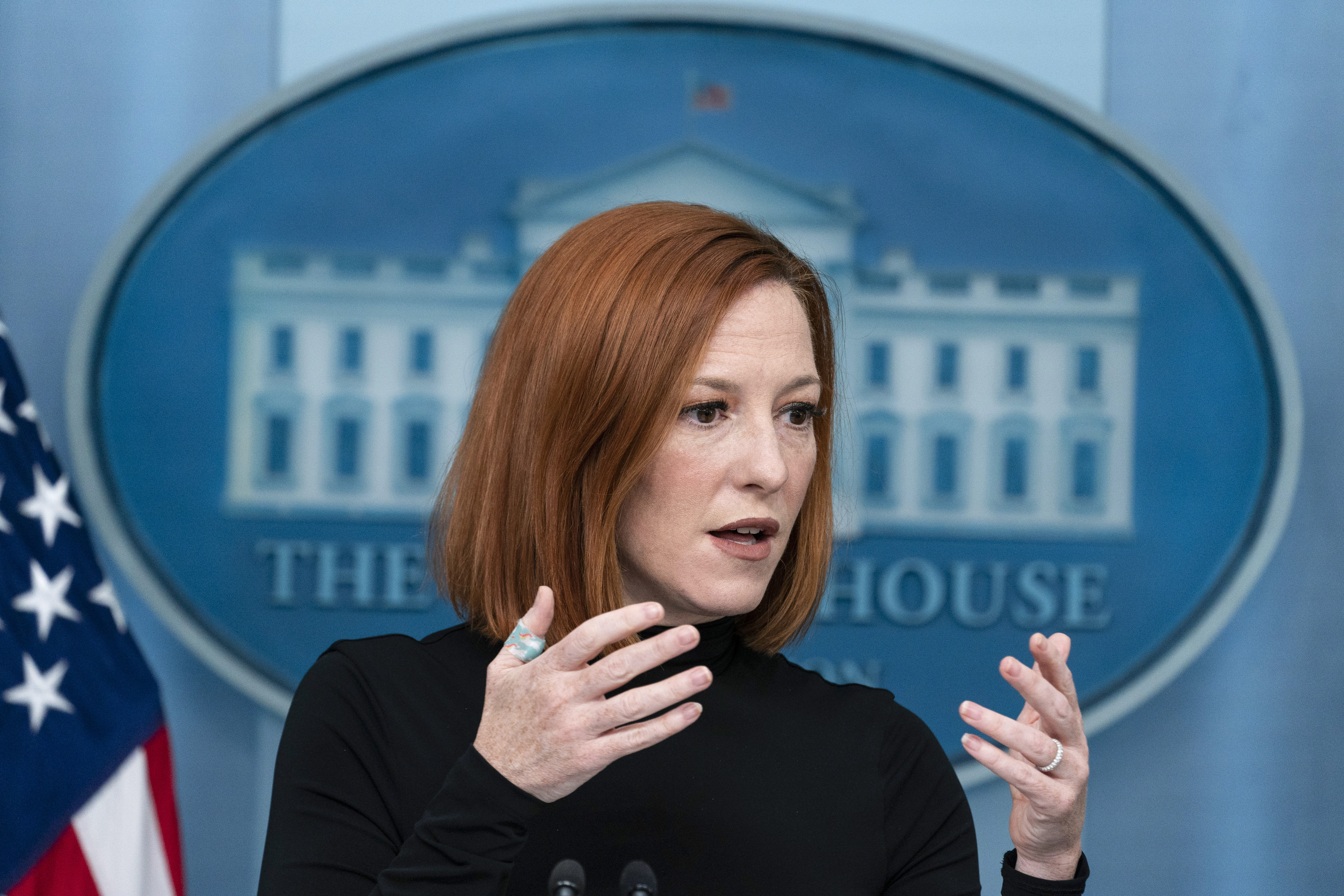
The Biden administration is no longer using the word “imminent” to describe a potential Russian invasion of Ukraine, the White House announced on Wednesday — backing away from an assessment U.S. officials had repeatedly deployed in recent days before Ukrainian President Volodymyr Zelenskyy indicated frustration with the term.
“I used that once. I think others have used that once, and then we stopped using it,” White House press secretary Jen Psaki said at a news briefing, explaining that the word “imminent” mistakenly conveyed certainty among U.S. officials about Russian President Vladimir Putin’s intentions.
“I think it sent a message that we weren’t intending to send, which was that we knew that President Putin had made a decision,” Psaki said. “I would say the vast majority of times I’ve talked about it, we said he could invade at any time. That’s true. We still don’t know that he’s made a decision.”
U.S. officials began escalating their warnings about the Russian threat two weeks ago, when Psaki said at a news briefing that the security situation was “now at a stage where Russia could at any point launch an attack in Ukraine.”
Psaki reiterated that position on Jan. 25, telling reporters: “I think when we said it was imminent, it remains imminent.” Last Thursday, when asked whether the White House had altered its assessment of an “imminent” invasion, Psaki responded that the official opinion “has not changed.” And as recently as Tuesday, Pentagon spokesperson John Kirby said at a news briefing that Putin “could move imminently, at any time.”
Meanwhile, Ukrainian officials have urged calm. Zelenskyy said in a televised address to the nation on Jan. 25 that his government was “strong enough to keep everything under control and derail any attempts at destabilization.” Ukrainian Defense Minister Oleksii Reznikov also said in a speech to the nation’s parliament: “Don’t worry, sleep well. No need to have your bags packed.”
Zelenskyy and Biden reportedly disagreed over the United States’ “imminent” messaging in a call last Thursday that some media accounts characterized as tense. And Friday, Zelenskyy publicly expressed annoyance over Western depictions of the security situation — arguing that they were undermining Ukrianians’ faith in government and stoking economic panic across the nation.
“These signals were sent by even respected leaders of the respected countries. And sometimes, they’re not even using diplomatic language,” Zelenskyy said at a news conference. “They’re saying, ‘Tomorrow is the war.’ This means panic in the market. Panic in the financial sector. … How much does it cost to our country?”
POLITICO previously reported that part of Zelenskyy’s complaint about the word “imminent” was its unclear meaning in his East Slavic language. There is no direct Ukrainian translation for “imminent” — that word is Неминуче, which most closely corresponds to “no matter what” or “inevitable.”



































